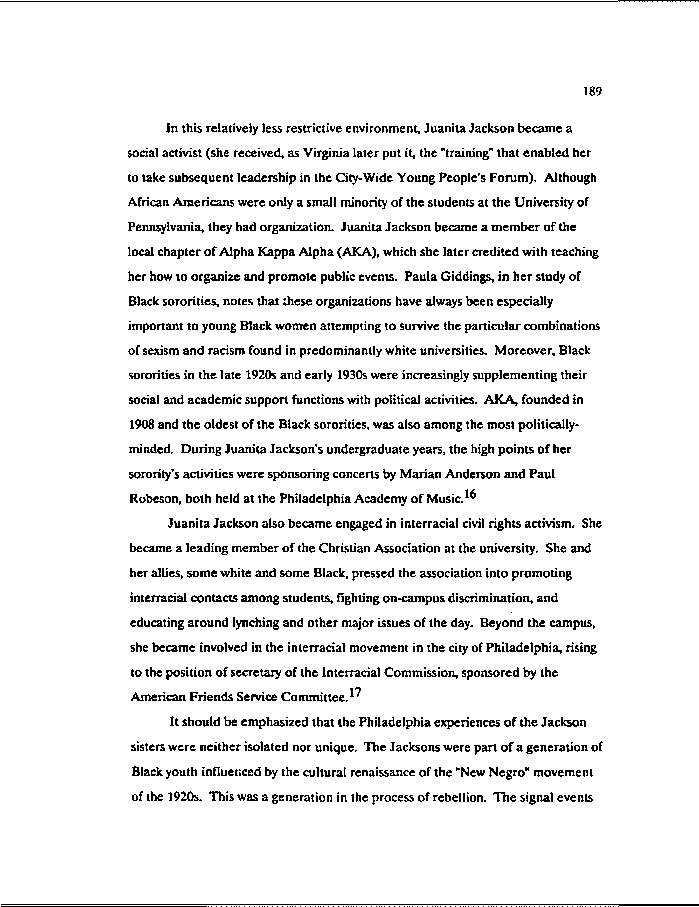|
189
In this relatively less restrictive environment, Juanita Jackson became a
social activist (she received, as Virginia later put it, the "training" that enabled her
to take subsequent leadership in the City-Wide Young People's Forum). Although
African Americans were only a small minority of the students at the University of
Pennsylvania, they had organization. Juanita Jackson became a member of the
local chapter of Alpha Kappa Alpha (AKA), which she later credited with teaching
her how to organize and promote public events. Paula Giddings, in her study of
Black sororities, notes that these organizations have always been especially
important to young Black women attempting to survive the particular combinations
of sexism and racism found in predominantly white universities. Moreover, Black
sororities in the late 1920s and early 1930s were increasingly supplementing their
social and academic support functions with political activities. AKA, founded in
1908 and the oldest of the Black sororities, was also among the most politically-
minded. During Juanita Jackson's undergraduate years, the high points of her
sorority's activities were sponsoring concerts by Marian Andersen and Paul
Robeson, both held at the Philadelphia Academy of Music.16
Juanita Jackson also became engaged in interracial civil rights activism. She
became a leading member of the Christian Association at the university. She and
her allies, some white and some Black, pressed the association into promoting
interracial contacts among students, fighting on-campus discrimination, and
educating around lynching and other major issues of the day. Beyond the campus,
she became involved in the interracial movement in the city of Philadelphia, rising
to the position of secretary of the Interracial Commission, sponsored by the
American Friends Service Committee. *'
It should be emphasized that the Philadelphia experiences of the Jackson
sisters were neither isolated nor unique. The Jacksons were part of a generation of
Black youth influenced by the cultural renaissance of the "New Negro" movement
of the 1920s. This was a generation in the process of rebellion. The signal events
|

